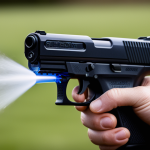Skill-Building Exercises for Field Hockey
Developing fundamental skills is crucial in field hockey for both new players and seasoned athletes aiming for continuous improvement. One must consistently focus on skill drills to enhance essential hockey techniques.
Stickhandling, for example, is the backbone of effective play. Players should practice with cones to refine their control and agility on the field. Incorporating progressive skill drills can help players measure their development over time. Passing is another vital skill wherein accuracy and speed play key roles. Practicing short, quick passes in a triangle formation can promote efficient ball movement.
Also read : Mastering the Ultimate Sponsorship Proposal: Key Components for UK Minor League Football Clubs
For shooting, players should work on their stance and follow-through by aiming for specific targets in the net. This reinforces precision and power. Regularly participating in these exercises not only boosts individual skills but also enhances overall player development.
Furthermore, integrating these drills into regular practice sessions enables players to track their progress, ensuring that they are meeting their individual and team objectives. Engaging in varied and challenging drills keeps the training process dynamic and impactful, enhancing a player’s readiness for competition.
Also read : Unleashing Potential: Proven Tactics to Inspire and Empower Young Football Coaches in the UK
Conditioning Routines to Enhance Performance
Effective fitness training is essential in field hockey, as it ensures athletes maintain peak endurance and overall performance during intense matches. One vital component is sport-specific conditioning exercises. These routines, which include interval running and acute sprints, help mimic the pace and flow of a real game, enhancing cardiovascular resilience.
Furthermore, strength training plays a pivotal role. Incorporating exercises like squats, lunges, and core workouts builds muscular endurance, allowing players to engage in the physical aspects of the game effectively. Athletes benefit from added explosiveness, essential for quick directional changes and acceleration on the field.
To comprehensively boost a player’s capabilities, integrating strength and agility training is crucial. Drills that incorporate cone work and ladder exercises improve footwork and coordination, while plyometric routines boost functional power. These diverse methods adapt the body to the sport’s dynamic demands.
Overall, conditioning routines tailored to the rigours of field hockey optimise individual performance. By blending cardiovascular, strength, and agility training, athletes enhance their readiness for competition, gaining an edge over their opponents.
Tactical Strategies for Game Improvement
In field hockey, mastering game tactics is essential for enhancing team performance. A solid understanding begins with key concepts like positioning and movement on-field. Players should focus on maintaining the right positioning throughout the game to effectively intercept passes and close gaps. By employing strategic plays, teams can exploit the opposition’s weaknesses, creating scoring opportunities.
Communication and team cohesiveness are vital. Players must convey their intentions and changes in strategy clearly, ensuring everyone is synchronized. Effective verbal and non-verbal cues can significantly bolster a team’s ability to respond dynamically to different game situations.
Understanding how to adapt tactics during a match is crucial. Teams must be prepared to switch strategies based on the flow of the game and the opponent’s tactics. For instance, using a high press can put pressure on the opponent by cutting off passing lanes, while a zonal defense focuses on guarding specific areas of the field.
Ultimately, an emphasis on tactical nuances enables better decision-making. Field hockey players who consistently apply these strategies can enhance their competitive edge and overall game prowess.
Mental Preparation Techniques for Athletes
In the competitive world of sports, mental conditioning is as crucial as physical training. Athletes benefit from techniques that boost their sports psychology, enhancing overall performance. Developing mental resilience helps athletes manage stress and maintain composure during high-pressure situations.
Focus techniques play a pivotal role in honing an athlete’s attention during critical moments. Practices such as mindfulness and concentration exercises aid in blocking distractions, ensuring sharper gameplay. Athletes can benefit from specific routines that train their mental stamina, directly translating to better performance on the field.
Visualization is another powerful tool in an athlete’s mental arsenal. By mentally rehearsing successful outcomes, players reinforce positive patterns and can improve their execution during actual performance. Coupled with goal setting, it provides a structured roadmap for achieving both short-term and long-term objectives.
Persistent incorporation of these mental strategies ensures athletes not only perform at their peak but also enjoy sustained psychological well-being, ultimately leading to a successful and balanced sports career.
Incorporating Expert Insights and Resources
In field hockey, leveraging coaching tips and insights from seasoned professionals is invaluable for optimal player development. Experienced coaches provide tailored feedback, helping players refine their hockey techniques and enhance their overall game prowess.
Access to a variety of training resources—including instructional books, detailed videos, and insightful webinars—can supplement on-field training. These materials offer diverse perspectives and innovative approaches to mastering skill drills and strategic play, allowing athletes to continually evolve and access new learning opportunities.
Studying case studies of successful training programs offers practical examples of how specific coaching tips and methodologies have propelled athletes toward excellence. Understanding these real-world applications aids players in adopting proven strategies that can be tailored to their needs. Engaging with expert analysis helps athletes and coaches identify practical solutions to common challenges, ensuring they stay ahead of the competition.
Training resources encompassing various aspects of the game not only support skill acquisition but also encourage a deeper understanding of field hockey, keeping players motivated and engaged in their pursuit of performance excellence.


